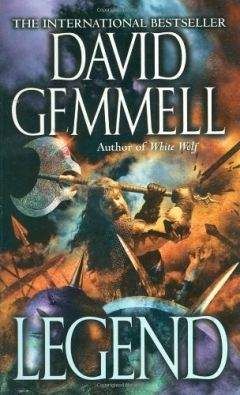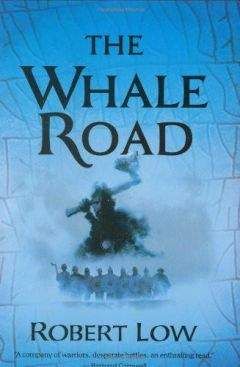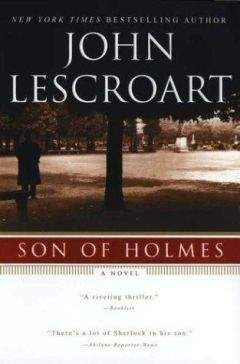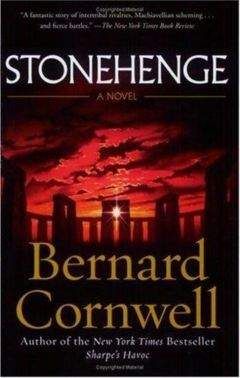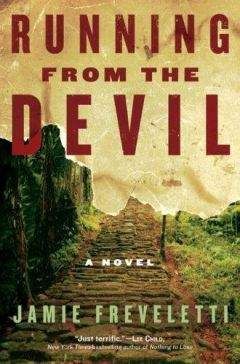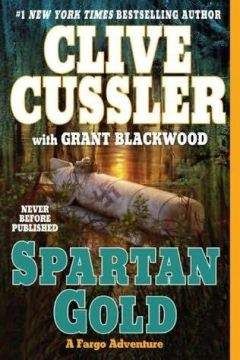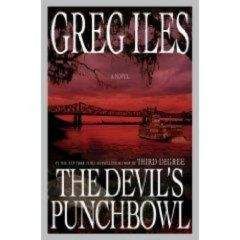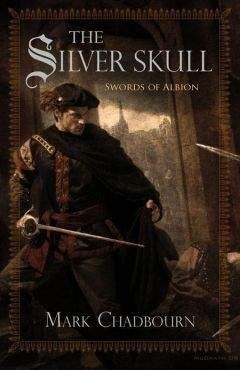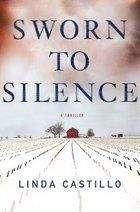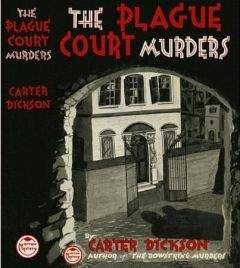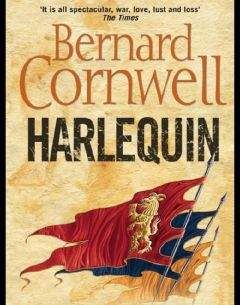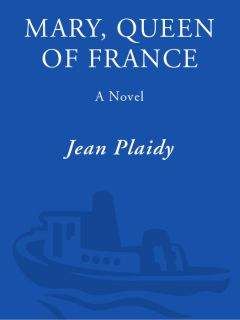Bernard Cornwell - The Grail Quest 2 - Vagabond

Все авторские права соблюдены. Напишите нам, если Вы не согласны.
Описание книги "The Grail Quest 2 - Vagabond"
Описание и краткое содержание "The Grail Quest 2 - Vagabond" читать бесплатно онлайн.
In Harlequin, Thomas of Hookton travelled to France as an archer and there discovered a shadowy destiny, which linked him to a family of heretical French lords who sought Christendom′s greatest relic.
Having survived the battle of Crécy, Thomas is sent back to England, charged with finding the Holy Grail. But Thomas is an archer and when a chance comes to fight against an army invading northern England he jumps at it. Plunged into the carnage of Neville′s Cross, he is oblivious to other enemies who want to destroy him. He discovers too late that he is not the only person pursuing the grail, and that his rivals will do anything to thwart him.
After hunting and wounding him, Thomas′s enemies turn him into a fugitive. Fleeing England, he travels to Normandy, determined to rescue Will Skeat, his old commander from Harlequin. Finally Thomas leads his enemies back to Brittany, where he goes to discover an old love and where his pursuers at last trap their reluctant pilgrim.
Vagabond is a vivid and realistic portrait of England at a time when the archer was king of Europe′s battlefields.
'I come from Cardinal Bessieres,' de Taillebourg said,
'in Paris, and he sends you his greetings. Drink this, it will warm you.' He held the mulled wine towards the old man.
Collimore refused the wine. His eyes were cautious. 'Cardinal Bessieres?' he asked, his tone implying that the name was new to him.
'The Pope's legate in France.' De Taillebourg was sur-prised that the monk did not recognize the name, but thought perhaps the dying man's ignorance would be useful. 'And the Cardinal is a man,' the Dominican went on, 'who loves the Church as fiercely as he loves God.'
'If he loves the Church,' Collimore said with a surpris-ing force, 'then he will use his influence to persuade the Holy Father to take the papacy back to Rome.' The statement exhausted him and he closed his eyes. He had never been a big man, but now, beneath his lice-ridden blanket, he seemed to have shrunk to the size of a ten-year-old and his white hair was thin and fine like a small infant's. 'Let him move the papacy to Rome,' he said again, though feebly, 'for all our troubles have worsened since it was moved to Avignon.'
'Cardinal Bessieres wants nothing more than to move the Holy Father back to Rome,'
de Taillebourg lied, 'and perhaps you, brother, can help us achieve that.'
Brother Collimore appeared not to hear the words. He had opened his eyes again, but just lay gazing up at the whitewashed stones of the arched ceiling. The room was low, chill and white. Sometimes, when the summer sun was high, he could see the flicker of reflected water on the white stones. In heaven, he thought, he would be forever within sight of crystal rivers and under a warm sun. 'I was in Rome once,' he said wistfully. 'I remember going down some steps into a church where a choir sang. So beautiful.'
'The Cardinal wants your help,' de Taillebourg said.
'There was a saint there.' Collimore was frowning, trying to remember. 'Her bones were yellow.'
'So the Cardinal sent me to see you, brother,' de Taillebourg said softly. His servant, dark-eyed and elegant, watched from the door.
'Cardinal Bessieres,' Brother Collimore said in a whisper.
'He sends you his greetings in Christ, brother.' 'What Bessieres wants,' Collimore said, still in a whisper, 'he takes with whips and scorpions.'
De Taillebourg half smiled. So Collimore did know of Cardinal Bessieres after all, and no wonder, but perhaps fear of Bessieres would be sufficient to elicit the truth. The monk had closed his eyes again and his lips were moving silently, suggesting he was praying. De Taillebourg did not disturb the prayers, but just gazed through the small window to where the Scots were making their battle line on the far hill. The invaders faced southwards so that the left end of their line was nearest to the city and de Taillebourg could see men jostling for position as they tried to take the places of honour closest to their lords. The Scots had evidently decided to fight on foot so that the English archers could not destroy their men-at-arms by cutting down their horses. There was no sign of those English yet, though from all de Taillebourg had heard they could not have assembled a great force. Their army was in France, outside Calais, not here, so perhaps it was merely a local lord leading his retainers? Yet plainly there were enough men to persuade the Scots to form a battle line, and de Taillebourg did not expect David's army to be delayed for long. Which meant that if he wanted to hear the old man's story and be away from Durham before the Scots entered the city then he had best make haste. He looked back at the monk, 'Cardinal Bessieres wants only the glory of the Church and of God. And he wants to know about Father Ralph Vexille.'
'Dear God,' Collimore said, and his fingers traced the bone figure on the small crucifix as he opened his eyes and turned his head to stare at the priest. The monk's expression suggested it was the first time he had really noticed de Taillebourg and he shuddered, recognizing in his visitor a man who believed suffering gave merit. A man, Collimore reflected, who would be as implacable as his master in Paris. 'Vexille!' Collimore said, as though he had almost forgotten the name, and then he sighed. 'It is a long tale,' he said tiredly.
'Then I will tell you what I know of it,' de Taillebourg said. The gaunt Dominican was pacing the room now, turning and turning again in the small space under the highest part of the arched ceiling. 'You have heard,' he demanded, 'that a battle was fought in Picardy in the summer? Edward of England fought his cousin of France and a man came from the south to fight for France and on his banner was the device of a yale hold-ing a cup.' Collimore blinked, but said nothing. His eyes were fixed on de Taillebourg who, in turn, stopped his pacing to look at the priest. 'A yale holding a cup,' he repeated.
'I know the beast,' Collimore said sadly. A yale was an heraldic animal, unknown in nature, clawed like a lion, horned like a goat and scaled like a dragon.
'He came from the south,' de Taillebourg said, 'and he thought that by fighting for France he would wash from his family's crest the ancient stains of heresy and of treason.'
Brother Collimore was far too sick to see that the priest's servant was now listening intently, almost fiercely, or to notice that the Dominican had raised his voice slightly to make it easier for the servant, who still stood in the doorway, to overhear. 'This man came from the south, riding in pride, believing his soul to be beyond reproof, but no man is beyond God's reach. He thought he would ride in victory into the King's affections, but instead he shared France's defeat. God will sometimes humble us, brother, before raising us to glory.' De Taillebourg spoke to the old monk, but his words were for his servant's ears. 'And after the battle, brother, when France wept, I found this man and he talked of you.'
Brother Collimore looked startled, but said nothing. 'He talked of you,' Father de Taillebourg said, 'to me. And I am an Inquisitor.'
Brother Collimore's fingers fluttered in an attempt to make the sign of the cross. 'The Inquisition,' he said feebly, 'has no authority in England.'
'The Inquisition has authority in heaven and in hell, and you think little England can stand against us?' The fury in de Taillebourg's voice echoed in the hospital cell. 'To root out heresy, brother, we will ride to the ends of the earth.'
The Inquisition, like the Dominican order of friars, was dedicated to the eradication of heresy, and to do it they employed fire and pain. They could not shed blood, for that was against the law of the Church, but any pain inflicted without blood-letting was permitted, and the Inquisition knew well that fire cauterized bleeding and that the rack did not pierce a heretic's skin and that great weights pressed on a man's chest burst no veins. In cellars reeking of fire, fear, urine and smoke, in a darkness shot through with flamelight and the screams of heretics, the Inquisition hunted down the enemies of God and, by the application of bloodless pain, brought their souls into a blessed unity with Christ.
'A man came from the south,' de Taillebourg said to Collimore again, 'and the crest on his shield was a yale holding a cup.'
'A Vexille,' Collimore said.
'A Vexille,' de Taillebourg said, 'who knew your name. Now why, brother, would a heretic from the southern lands know the name of an English monk in Durham?'
Brother Collimore sighed. 'They all knew,' he said tiredly, 'the whole family knew. They knew because Ralph Vexille was sent to me. The bishop thought I could cure him of madness, but his family feared he would tell me secrets instead. They wanted him dead, but we locked him away in a cell where no one but I could reach him.'
'And what secrets did he tell you?' de Taillebourg asked.
'Madness,' Brother Collimore said, 'just madness.' The servant stood in the doorway and watched him.
'Tell me of the madness,' the Dominican ordered.
'The mad speak of a thousand things,' Brother Collimore said, 'they speak of spirits and phantoms, of snow in summer and darkness in the daylight.'
'But Father Ralph spoke to you of the Grail,' de Taillebourg said flatly.
'He spoke of the Grail,' Brother Collimore confirmed.
The Dominican let out a sigh of relief. 'What did he tell you of the Grail?'
Hugh Collimore said nothing for a while. His chest rose and fell so feebly that the motion was scarcely visible, then he shook his head. 'He told me that his family had owned the Grail and that he had stolen and hidden it! But he spoke of a hundred such things. A hundred such things.'
'Where would he have hidden it?' de Taillebourg enquired.
'He was mad. Mad. It was my job, you know, to look after the mad? We starved or beat them to drive the devils out, but it did not always work. In winter we would plunge them into the river, through the ice, and that worked. Devils hate the cold. It worked with Ralph Vexille, or mostly it worked. We released him after a while. The demons were gone, you see.'
'Where did he hide the Grail?' De Taillebourg's voice was harder and louder. Brother Collimore stared at the flicker of reflected water light on the ceiling. 'He was mad,' he whispered, 'but he was harmless. Harmless. And when he left here he was sent to a parish in the south. In the far south.'
'At Hookton in Dorset?'
'At Hookton in Dorset,' Brother Collimore agreed, 'where he had a son. He was a great sinner, you see, even though he was a priest. He had a son.'
Father de Taillebourg stared at the monk who had, at last, given him some news. A son? 'What do you know of the son?'
'Nothing.' Brother Collimore sounded surprised that he should be asked.
'And what do you know of the Grail?' de Taillebourg probed.
'I know that Ralph Vexille was mad,' Collimore said in a whisper. De Taillebourg sat on the hard bed. 'How mad?'
Collimore's voice became even softer. 'He said that even if you found the Grail then you would not know it, not unless you were worthy.' He paused and a look of puzzlement, almost amazement, showed briefly on his face. 'You had to be worthy, he said, to know what the Grail was, but if you were worthy then it would shine like the very sun. It would dazzle you.'
De Taillebourg leaned close to the monk. 'You believed him?'
'I believe Ralph Vexille was mad,' Brother Collimore said.
'The mad sometimes speak truth,' de Taillebourg said.
'I think,' Brother Collimore went on as though the Inquisitor had not spoken, 'that God gave Ralph Vexille a burden too great for him to bear.'
'The Grail?' de Taillebourg asked.
'Could you bear it? I could not.'
'So where is it?' de Taillebourg persisted. 'Where is it?'
Brother Collimore looked puzzled again. 'How would I know?'
'It was not at Hookton,' de Taillebourg said, 'Guy Vexille searched for it.'
'Guy Vexille?' Brother Collimore asked.
'The man who came from the south, brother, to fight for France and ended in my custody.'
'Poor man,' the monk said.
Father de Taillebourg shook his head. 'I merely showed him the rack, let him feel the pincers and smell the smoke. Then I offered him life and he told me all he knew and he told me the Grail was not at Hookton.'
The old monk's face twitched in a smile. 'You did not hear me, father. If a man is unworthy then the Grail would not reveal itself. Guy Vexille could not have been worthy.'
'But Father Ralph did possess it?' De Taillebourg sought reassurance. 'You think he really possessed it?' 'I did not say as much,' the monk said.
'But you believe he did?' de Taillebourg asked and, when Brother Collimore said nothing, he nodded to himself. 'You do believe he did.' He slipped off the bed, going to his knees and a look of awe came to his face as his linked hands clawed at each other.
'The Grail,' he said in a tone of utter wonder.
'He was mad,' Brother Collimore warned him.
De Taillebourg was not listening. 'The grail,' he said again, 'le Graal!' He was clutching himself now, rocking back and forth in ecstasy. 'Le Graal!'
'The mad say things,' Brother Collimore said, 'and they do not know what they say.'
'Or God speaks through them,' de Taillebourg said fiercely.
'Then God sometimes has a terrible tongue,' the old monk replied.
'You must tell me,' de Taillebourg insisted, 'all that Father Ralph told you.'
'But it was so long ago!'
'It is le Graal !' de Taillebourg shouted and, in his frustration, he shook the old man. 'It is le Graal ! Don't tell me you have forgotten.' He glanced through the window and saw, raised on the far ridge, the red saltire on the yellow banner of the Scottish King and beneath it a mass of grey-mailed men with their thicket of lances, pikes and spears. No English foe was in sight, but de Taillebourg would not have cared if all the armies of Christendom were come to Durham for he had found his vision, it was the Grail, and though the world should tremble with armies all about him, he would pursue it. And an old monk talked.
The horseman with the rusted mail, broken-strapped breastplate and scallop-decorated shield named himself as Lord Outhwaite of Witcar. 'Do you know the place?' he asked Thomas.
'Witcar, my lord? I've not heard of it.'
'Not heard of Witcar! Dear me. And it's such a pleas-ant place, very pleasant. Good soil, sweet water, fine hunting. Ah, there you are!' This last was to a small boy mounted on a large horse and leading a second destrier by the reins. The boy wore a jupon that had the scalloped cross emblazoned in yellow and red and, tugging the warhorse behind him, he spurred towards his master.
'Sorry, my lord,' the boy said, 'but Hereward do haul away, he do.' Hereward was evidently the destrier he led. 'And he hauled me clean away from you!'
'Give him to this young man here,' Lord Outhwaite said. 'You can ride?' he added earnestly to Thomas.
'Yes, my lord.'
'Hereward is a handful though, a rare handful. Kick him hard to let him know who's master.'
A score of men appeared in Lord Outhwaite's livery, all mounted and all with armour in better repair than their master's. Lord Outhwaite turned them back south. 'We were marching on Durham,' he told Thomas, 'just minding our own affairs as good Christians should, and the wretched Scots appeared! We won't make Durham now. I was married there, you know? In the cathedral. Thirty-two years ago, can you credit it?' He beamed happily at Thomas. 'And my dear Margaret still lives, God be praised. She'd like to hear your tale. You really were at Wadicourt?'
'I was, my lord.'
'Fortunate you, fortunate you!' Lord Outhwaite said, then hailed yet more of his men to turn them about before they blundered into the Scots. Thomas was rapidly coming to realize that Lord Outhwaite, despite his ragged mail and dishevelled appearance, was a great lord, one of the magnates of the north country, and his lordship confirmed this opinion by grumbling that he had been forbidden by the King to fight in France because he and his men might be needed to fend off an invasion by the Scots. 'And he was quite right!' Lord Outhwaite sounded surprised. 'The wretches have come south! Did I tell you my eldest boy was in Picardy? That's why I'm wearing this.' He plucked at a rent in the old mail coat. 'I gave him the best armour we had because I thought we wouldn't need it here! Young David of Scotland always seemed peaceable enough to me, but now England's overrun by his fellows. Is it true that the slaughter at Wadicourt was vast?'
Подписывайтесь на наши страницы в социальных сетях.
Будьте в курсе последних книжных новинок, комментируйте, обсуждайте. Мы ждём Вас!
Похожие книги на "The Grail Quest 2 - Vagabond"
Книги похожие на "The Grail Quest 2 - Vagabond" читать онлайн или скачать бесплатно полные версии.
Мы рекомендуем Вам зарегистрироваться либо войти на сайт под своим именем.
Отзывы о "Bernard Cornwell - The Grail Quest 2 - Vagabond"
Отзывы читателей о книге "The Grail Quest 2 - Vagabond", комментарии и мнения людей о произведении.






